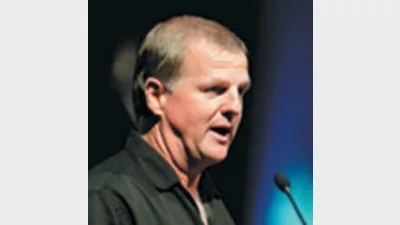Write-downs of industry fund values 'not inevitable': Weaven



Industry Funds Management (IFM) chairman Garry Weaven has rejected the widespread notion that write-downs for industry funds were inevitable on the back of falling unlisted asset values.
Speaking on ABC's Insiders program yesterday, Weaven said it was “not inevitable" that there would be write-downs of unlisted assets this year and next year and that industry funds would follow suit.
“I don’t think unlisted assets will fall more sharply in the June quarter, and in fact we have some direct knowledge at IFM about a number of these portfolios, for example, in the infrastructure space, and I am not expecting sharp falls.
“If anything, I think the sharp falls have already come out of the system and there may be some reversal of that now,” he said.
“There might be a small lag to the share market by unlisted assets, but now that the share market is starting to rise, this small lag may well start to produce increases in unlisted assets going forward.
“You have to be specific about the particular funds and the particular assets here, as it is hard to make a generalisation.
“However, our competitors do try to make that generalisation and usually do it out of public sight, in back rooms,” Weaven said.
He added that there were independent ratings agencies that monitor the performance of the industry funds on a monthly basis, and “what is absolutely clear from this is that over all time periods, the average industry fund is outperforming the retail master trusts".
“The most recent figures I have seen is that the gap between the average not for profit funds, including industry funds, and the average retail or full-profit commercial master trust has now gone back towards its long-terms historical gap, which is still 2.5 per annum.
“At one point the gap was 6 per cent per annum, so it’s all a question of degree — but it wouldn’t give me much comfort if I were a one of those product providers in the retail commercial sectors,” he said.
Weaven also called for legislation to “get rid of commission payments in super, and also to ensure there is an unequivocal requirement by advisers to act in the client’s best interest”.
Referring to the launch last week of the Investment and Financial Services Association (IFSA) superannuation charter, Weaven said the changes proposed by the organisation simply “recognise that there is a problem with the payments of commission".
“Some people within IFSA are trying to show some leadership, but equally there are many recalcitrants, and the proposed changes do not fix the problem.
“Legislation would not only remove commission selling from the super and financial services industry but also indicate that if you wish to be a financial planner or accountant, you must be required to act in the best interest of the client.
“That means making a proper judgment about which super fund has the best record, the best fee structure and is therefore also likely to be the best product for the future.”
Recommended for you
Next year will see AMP roll out an end-to-end solution for its North platform, marking a shift in the firm’s position within the advice technology sector and building on adviser feedback.
My Dealer Services is predicting strong growth in self-licensing next year, citing recent ASIC action against Interprac and the desire for independence as key drivers of the self-licensing trend.
ASIC has handed down a six-month AFSL suspension to MW Planning after the firm failed to replace its banned responsible manager.
Despite the year almost at an end, advisers have been considerably active in licensee switching this week while the profession has reported a slight uptick in numbers.










